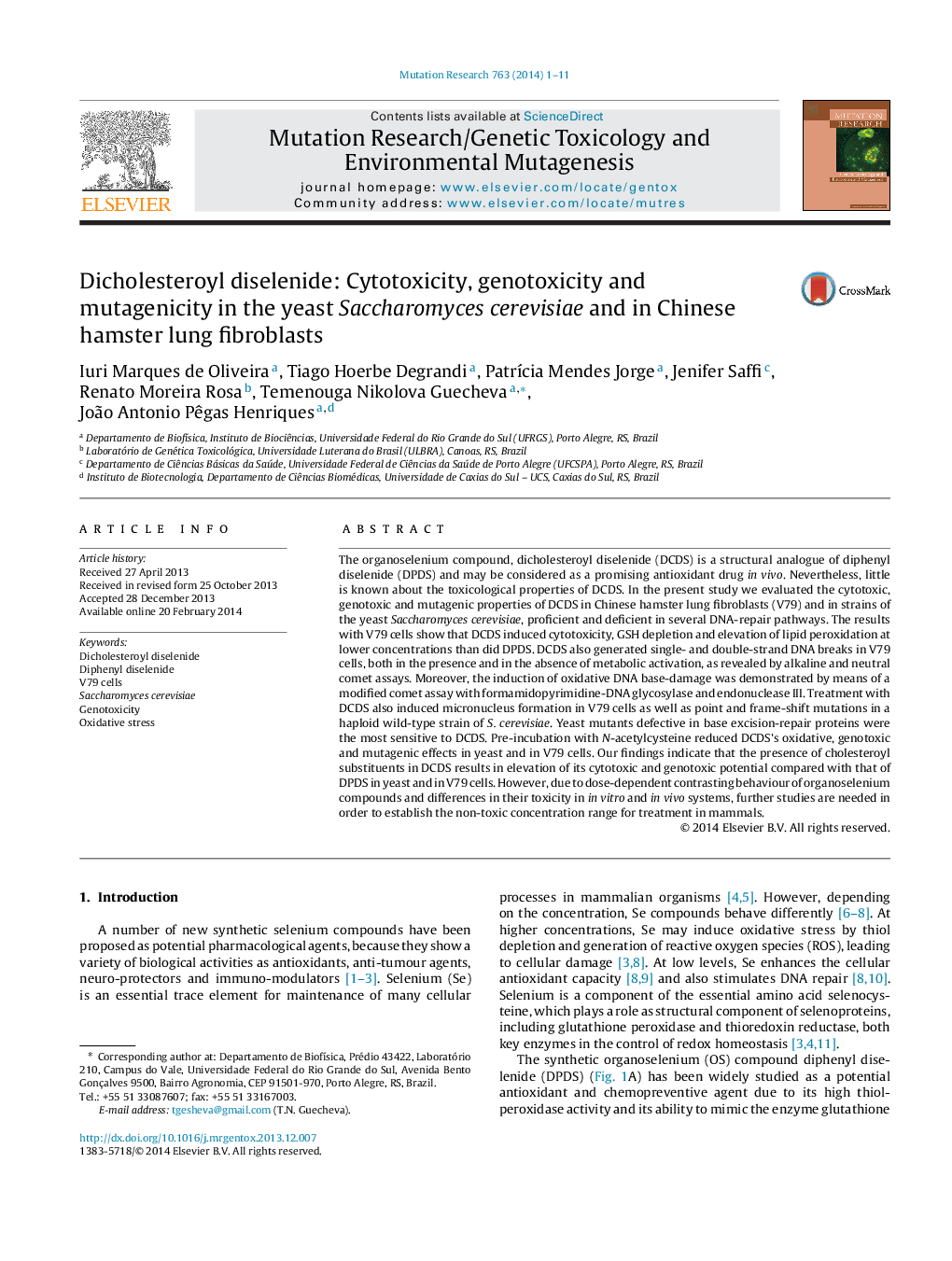| Article ID | Journal | Published Year | Pages | File Type |
|---|---|---|---|---|
| 8456476 | Mutation Research/Genetic Toxicology and Environmental Mutagenesis | 2014 | 11 Pages |
Abstract
The organoselenium compound, dicholesteroyl diselenide (DCDS) is a structural analogue of diphenyl diselenide (DPDS) and may be considered as a promising antioxidant drug in vivo. Nevertheless, little is known about the toxicological properties of DCDS. In the present study we evaluated the cytotoxic, genotoxic and mutagenic properties of DCDS in Chinese hamster lung fibroblasts (V79) and in strains of the yeast Saccharomyces cerevisiae, proficient and deficient in several DNA-repair pathways. The results with V79 cells show that DCDS induced cytotoxicity, GSH depletion and elevation of lipid peroxidation at lower concentrations than did DPDS. DCDS also generated single- and double-strand DNA breaks in V79 cells, both in the presence and in the absence of metabolic activation, as revealed by alkaline and neutral comet assays. Moreover, the induction of oxidative DNA base-damage was demonstrated by means of a modified comet assay with formamidopyrimidine-DNA glycosylase and endonuclease III. Treatment with DCDS also induced micronucleus formation in V79 cells as well as point and frame-shift mutations in a haploid wild-type strain of S. cerevisiae. Yeast mutants defective in base excision-repair proteins were the most sensitive to DCDS. Pre-incubation with N-acetylcysteine reduced DCDS's oxidative, genotoxic and mutagenic effects in yeast and in V79 cells. Our findings indicate that the presence of cholesteroyl substituents in DCDS results in elevation of its cytotoxic and genotoxic potential compared with that of DPDS in yeast and in V79 cells. However, due to dose-dependent contrasting behaviour of organoselenium compounds and differences in their toxicity in in vitro and in vivo systems, further studies are needed in order to establish the non-toxic concentration range for treatment in mammals.
Related Topics
Life Sciences
Biochemistry, Genetics and Molecular Biology
Cancer Research
Authors
Iuri Marques de Oliveira, Tiago Hoerbe Degrandi, PatrÃcia Mendes Jorge, Jenifer Saffi, Renato Moreira Rosa, Temenouga Nikolova Guecheva, João Antonio Pêgas Henriques,
